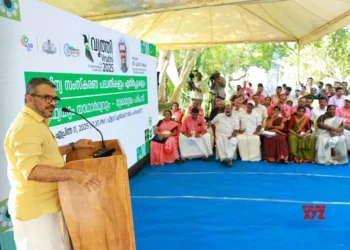The National Skill Development Corporation (NSDC) under the aegis of the Ministry of Skill Development & Entrepreneurship and the International Labour Organization (ILO) on Tuesday announced a strategic partnership to advance skill development and lifelong learning in India and globally.
This collaboration aims to empower individuals across the globe, by equipping them with essential competencies and qualifications, thereby enhancing employability and sustainable economic growth.
The MoU was signed by Ved Mani Tiwari, CEO, NSDC and Sangheon Lee, Director of ILO’s Employment Policy.
“A key aspect of the partnership is the implementation of the Skill India Digital Hub (SIDH). This digital transformation will streamline skill development initiatives, enhancing their efficiency, accessibility, and global impact,” said Atul Kumar Tiwari, Secretary, the Ministry of Skill Development & Entrepreneurship (MSDE).
He said that workers’ and employers’ organisations in ILO’s member countries would be able to use SIDH to digitise systems, processes, skills delivery, and job matching, based on a cost-effective model.
Tiwari also said that by combining ILO’s expertise with MSDE’s commitment to skilling, reskilling, and upskilling, the aim is to empower individuals to navigate disruptions and create a sustainable future.
The partnership aims to facilitate public-private partnerships and knowledge exchange to enhance Sector Skill Councils, develop micro-credentials, and promote Recognition of Prior Learning through a global knowledge-sharing platform. By strengthening the comparability of skills and qualifications, digital tools will be developed and deployed to assess and compare the skills and qualifications of Indian workers with those required in potential destination countries, improving mobility and global employability prospects for Indian workers.
Speaking on the partnership, Ved Mani Tiwari said that the MoU between ILO and NSDC will help build a pool of Indian youth for global opportunities as the partnership aims to align and benchmark Indian qualifications with global skills standards.
Tiwari also said that India is becoming a preferred destination for GCCs, opening opportunities for Indian youth to participate in remotely delivered knowledge work for the whole world.
Sangheon Lee said that combining NSDC technological capacity and ILO standard-setting functions, tripartism and global reach has the potential to significantly improve training access and quality globally.
Promoting quality apprenticeships, work-based learning for employability and productivity, and the development of sustainable enterprises will be a cornerstone of this collaboration, he added.























